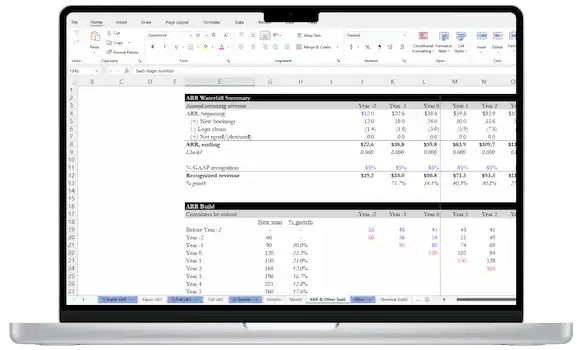Home
>
Resources
Learn the similarities and distinctions between growth equity and private equity

By Mike Hinckley
Expert Bio
Table of Contents
Add a header to begin generating the table of contents
Many ask: is growth equity “private equity”? Given the similarity in names, “growth equity” and “private equity” are often confused or conflated, and although they are both investment strategies, they are NOT the same and have many key differences.
In this article, I will seek to eliminate any confusion about the similarities and differences between growth equity and private equity.
To get started, the following table provides a side-by-side comparison. This will serve as a quick reference guide, highlighting key aspects such as investment stages, ownership stakes, debt usage, and more.
Primary differences between growth equity and private equity
While both invest large dollar amounts into companies and have similar return expectations (~25% IRR or above), growth equity and private equity tend to invest in different stages of a company, with different transaction structures and level of operational involvement.
The main differences between growth equity and private equity firms can be bucketed into these areas:
- Company growth rate – Relative to growth equity, private equity firms target more mature companies, who tend to be older in lifespan and have slower growth
- Company profitability – Because they are in the growth stage, companies receiving growth equity investment tend to have low (or even negative) overall profit since they are investing in growth; private equity firms target companies with stable profitability and cash flow, so they can support debt repayment
- Investment in public companies – It is very rare that a growth equity investment would target a company that is already publicly-traded due to concerns among LPs; meanwhile, private equity firms regularly target publicly-traded companies for so-called “take private” transactions
- Ownership stake – Growth equity investments tend to be minority, non-controlling stakes (e.g. less than 50% ownership), whereas LBO buyout transactions of private equity firms involves a majority controlling stake
- Amount of debt used – Growth equity investments typically target companies with low or no debt, while leveraged buyout transactions of private equity firms require large amounts of debt financing (often a majority amount)
- Levers for influence – Given their minority stakes, most growth equity firms influence the company’s operations either by taking a seat(s) on the company’s board or by influencing management through unofficial channels; given their majority stakes, private equity firms often have total control over governance and management
- Degree of operational involvement – Given their minority stake, growth equity firms are limited in the amount of control they can exert on portfolio companies, while private equity firms tend to purchase a majority stakes so they can be much more involved; that said, this is not typically a problem for growth equity firms, since these investments target fast growing companies that are thriving already. Therefore, there is less need to take control and change the direction of the company, in order to generate returns.
- Primary driver of returns – While private equity firms typically generate returns primarily from debt reduction in leveraged buyout (LBO) transactions, growth equity firms generate returns primarily from increases in revenue or profit, resulting in a larger equity valuation at time of sale
Lifecycle and strategies of growth equity and private equity investments
To better understand the differences between growth equity and private equity, it’s important to look at how each type of investment evolves over time. Let’s break down the stages of each investment type, from early-stage funding to exit, and highlight the strategies used by investors at each phase.
Lifecycle of Growth Equity Investments:
- Early Stage: Growth equity investors target companies in their expansion phase, characterized by high growth rates and significant market potential. These companies often reinvest earnings to fuel growth.
- Investment Phase: Involves providing capital for scaling operations, expanding market reach, and enhancing product offerings. Growth equity investors typically acquire minority stakes and act as strategic advisors.
- Maturity and Exit: As the company matures, growth equity investors aim for increased valuations through revenue growth and market positioning. Exit strategies often include public offerings or sales to larger companies.
Lifecycle of Private Equity Investments:
- Identification: Private equity firms target mature companies with stable cash flows and profitability. These firms look for undervalued assets or opportunities for operational improvements.
- Acquisition: Involves buying controlling stakes, often through leveraged buyouts (LBOs), where significant debt financing is used.
- Transformation: Focus on improving operational efficiency, restructuring management, and strategic repositioning to enhance profitability.
- Exit: Private equity firms typically exit through sales to other firms, secondary buyouts, or public offerings, aiming to capitalize on the improved financial health and market position of the company.
Investment Strategies:
- Growth Equity Strategies:
- Minority Investments: Targeting companies with high growth potential and providing capital for expansion without taking control.
- Strategic Partnerships: Leveraging industry expertise and networks to support the company’s growth trajectory.
- Private Equity Strategies:
- Leveraged Buyouts (LBOs): Acquiring companies with substantial debt financing, aiming for operational improvements and profitability.
- Turnaround Investments: Focusing on underperforming companies, implementing significant changes to drive performance improvements.
- Growth Capital: Similar to growth equity but with a focus on later-stage companies where private equity firms can exert more control.
Is “growth equity” considered “private equity”
Over time, the term “private equity firm” — which had originally referred to firms specializing in leveraged buyout (LBO) investing — is now often used colloquially to refer to any private investment firm, regardless of specialization or strategy.
That is, “private equity” has seemingly become a catch-all term that has been applied at various points to hedge funds, growth funds, and even venture capital funds. This has led to much confusion over how growth equity and private equity in particular relate to each other.
One additional factor that has further increased the confusion about the difference between growth equity and private equity is the fact that in recent years many large private equity firms have launched dedicated “growth” funds to compete within the growth investment stage.
As such, now several large “private equity” firms who have traditionally been known for leveraged buyout investing now also do growth investing. Some prominent examples include:
- Blackstone – launched Blackstone Growth in 2021
- KKR – launched KKR Tech Growth in 2014
- TPG – launched TPG Growth in 2007
Given their expansion into several investment strategies, including growth, these large private equity firms are perhaps better referred to now as “asset management” platforms specializing in a range of alternative asset classes. In addition to their traditional “leveraged buyout” funds, they now also operate growth funds, hedge funds, credit funds, and others.
(Article continues below)

- 88 lessons
- 18 video hours
- Excels & templates
STEP-BY-STEP ONLINE COURSE
Everything You Need to Master Growth Equity Interviews
Learn More
Growth equity vs. leveraged buyouts (LBO)
As discussed above, despite similarity of words, comparing growth equity and private equity can be confusing for a number of factors.
However, comparing growth investing to leverage buyout investing is much more straightforward, since the terms clearly both refer to investing strategies, rather than firms (which, as discussed above, can execute multiple types of strategies). The key differences are covered in this article’s section above.
Risk-return profile
On a deal-by-deal basis, the risk-return profile of growth equity tends to be similar to private equity. Growth investors, like buyout investors, tend to underwrite their deals with the expectation that all will perform well and there will be relatively few “zeros” in the portfolio. This contrasts to venture capital firms, who assume that many investments will fail completely and these will be more than overcome by huge gains on their few winners.
While the risk reward profile of growth equity may statistically look similar to private equity, it is true that returns for each strategy are susceptible to different risks. For instance, because LBO deals have high debt loads, private equity returns are typically negatively impacted by increases in borrowing costs (interest rates), whereas this might be unlikely to have a direct impact on growth equity returns (assuming no follow-on effects, e.g. slower GDP growth etc.).
Asset class financial performance
In 2019, consulting firm Bain provided an excellent comparison of the distribution of growth equity fund returns versus that of private equity and other asset classes.
As shown below, they are largely indistinguishable from private equity:

Comparing growth equity, private equity, venture capital, and leveraged buyouts (LBOs)
Growth Equity:
- Stage of Investment: Focuses on companies in the growth phase, beyond the startup stage but not yet mature.
- Ownership and Control: Minority stakes, with strategic advisory roles.
- Return Drivers: Achieved through revenue and profit increases, leading to higher valuations.
Private Equity:
- Stage of Investment: Targets mature, stable companies with established cash flows.
- Ownership and Control: Majority controlling stakes, often involving significant debt financing (LBOs).
- Return Drivers: Operational improvements, cost efficiencies, and debt reduction.
Venture Capital (VC):
- Stage of Investment: Targets early-stage startups and emerging companies with high growth potential but higher risk.
- Ownership and Control: Typically involves minority stakes and minimal control over daily operations.
- Return Drivers: Focus on capital appreciation from significant revenue growth and market penetration.
Leveraged Buyouts (LBOs):
- Stage of Investment: Involves acquiring mature companies using substantial debt financing.
- Ownership and Control: Full control over the company to implement strategic changes.
- Return Drivers: Primarily through financial restructuring, debt repayment, and enhancing operational efficiency.
Conclusion
For more, check out the rest of my definitive primer on the growth equity industry. Or, if you’re considering getting into a growth equity career, check out my guide on how to prepare for growth equity interviews.
- Articles in Guide
▾ 📗 Primer: Growth Equity
Growth Equity Investments
Top Growth Equity Firms
Growth Equity vs. Private Equity
Growth Equity vs. VC
Growth Equity Career Path
Growth Equity Hours
- More Guides
▸ Break Into Growth Equity
▸ Break Into Venture Capital
▸ 🚀 Break Into Private Equity
▸ Break Into Investment Banking
▸ 📗 Primer: Private Equity
▸ 📗 Primer: Investment Banking
DIVE DEEPER
The #1 Online Course for Growth Investing Interviews

- 63 lessons
- 13h video
- Templates
- Step-by-step video lessons
- Self-paced with immediate access
- Case studies with Excel examples
- Taught by industry expert
Learn More
Get My Best Tips on Growth Equity Recruiting
Just great content, no spam ever, unsubscribe at any time